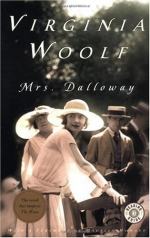|
This section contains 5,384 words (approx. 18 pages at 300 words per page) |

|
SOURCE: Clements, Susan. “The Point of ‘Slater's Pins’: Misrecognition and the Narrative Closet.” Tulsa Studies in Women's Literature 13, no. 1 (spring 1994): 15-26.
In the following essay, Clements regards “Slater's Pins Have No Points” as an “emblematic representation” of difficulties faced by lesbian writers and focuses “on the destructive and ultimately self-effacing practice of misrecognition.”
“Chloe liked Olivia,” I read. And then it struck me how immense a change was there. Chloe liked Olivia perhaps for the first time in literature.
—Virginia Woolf, A Room of One's Own1
Ideology “acts” or “functions” in such a way that it … “transforms” the individuals into subjects … by that very precise operation I have called interpellation or hailing. … By this … he becomes a subject. Why? Because he has recognized that the hail was “really” addressed to him, and that “it was really him who was hailed.”
—Louis Althusser, “Ideology and Ideological State Apparatuses”2
Killing...
|
This section contains 5,384 words (approx. 18 pages at 300 words per page) |

|


